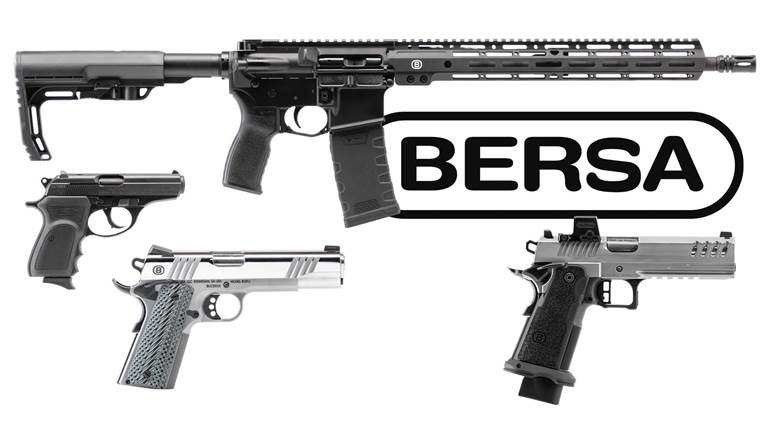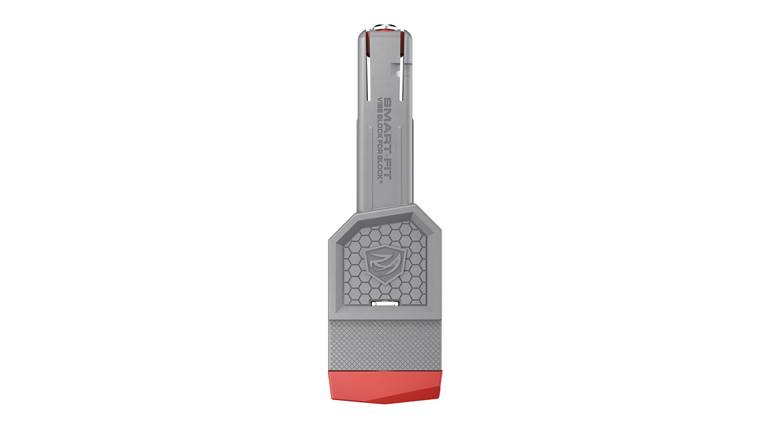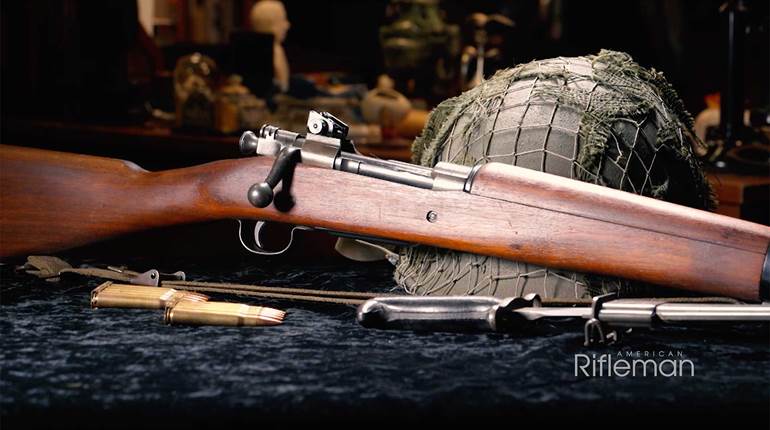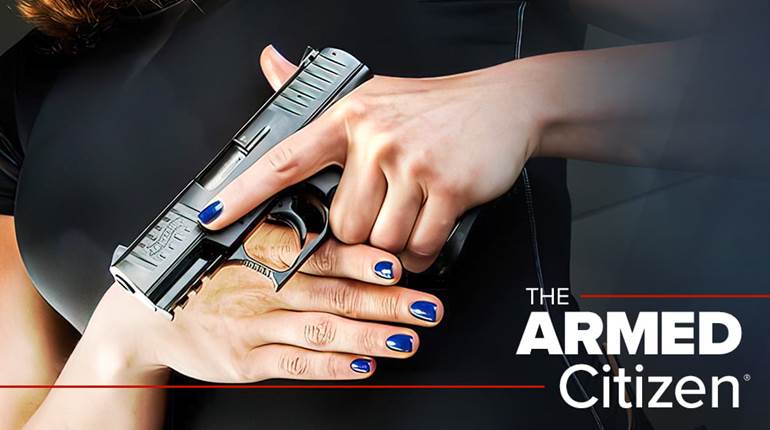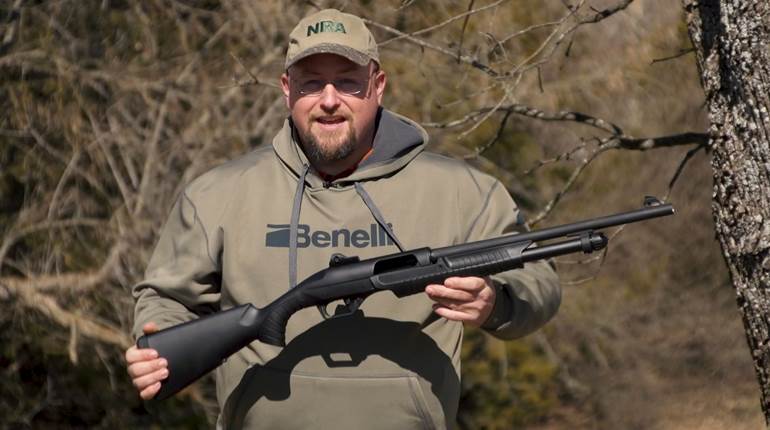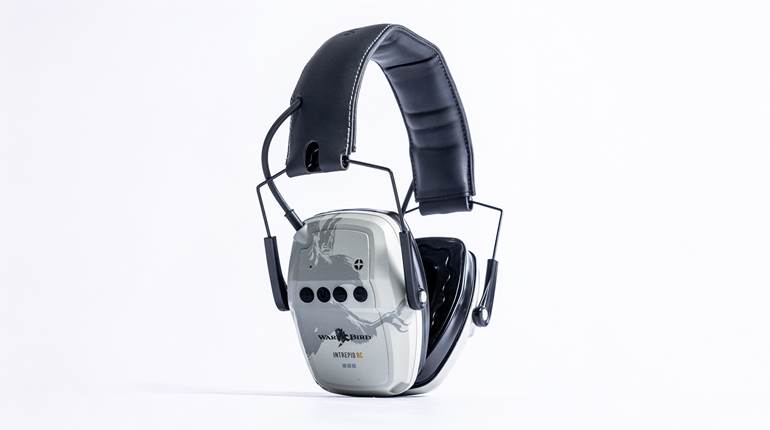
In 1983, the 10 mm semi-auto pistol cartridge made its debut. Developed by Jeff Cooper as a more powerful man stopper, the new cartridge was originally paired with the "Bren 10" pistol designed by Michael Dixon and Thomas Dornaus. Both the cartridge and the handgun generated plenty of excitement in the shooting community at the time. Unfortunately, the Bren 10 ran into production problems that limited it to a small 1,500 unit run of between 1983 to 1986. Despite the failure of the first pistol chambered for the potent 10 mm, the enthusiasm for the cartridge was still strong enough to induce Glock to step in and develop a shooting solution based on its pistol design.
The Glock Model 20 was developed in 1990, with an official launch in 1991. Since its inception, Glock has been dedicated to producing reliable semi-auto pistols, primarily for law enforcement and military applications, thus the G20 was a full-size duty sidearm designed with uniformed personnel in mind. At the same time, the company recognized civilian shooters would find additional applications for this potent pistol and cartridge combination. They advertized the G20 as a "Perfect 10," for safe, reliable handgun hunting.
So where does the 10 mm fit on the handgun hunting scale? It's helpful to compare it to two other readily available cartridges that are often employed for hunting and defense against wild animals, namely, the .357 Mag. and .44 Mag. revolver cartridges. The 10 mm has a S.A.A.M.I. maximum pressure rating of 37,500 psi. The .357 tops out at 35,000 psi with the .44 Mag. rating 36,000 psi. The bullet diameter of the 10 mm is 0.400 inches, splitting the difference between the .357’s. 0.357-inch bullet and .44’s 0.429-inch bullet.
Common 10 mm bullet weights range from 135 to 200 grains, with some companies offering heavy hunting bullets weighing 220 or 230 grains. The common .357 bullet weights range from 110 to 180 grains, while the .44 Mag. retains the title of heavy-weight champion with bullets usually ranging from 180 grains to over 300 grains. Velocity and energy levels vary greatly between these three cartridges depending on the bullet weight, action type and barrel length. But from the G20's 4.61-inch barrel, commercially loaded 180-grain 10 mm cartridges can yield velocities around 1,300 fps with about 675 ft.-lbs. of energy at the muzzle. This energy level is in line with a 180-grain .357 Mag. cartridge fired from a 4-inch revolver. If hunters want to boost the power of the G20 a bit more, drop-in, factory-manufactured 6-inch barrels are available from Glock and third party vendors, such as Lone Wolf Distributors and KKM Precision.
In the two decades since the G20 was released, Glock pistols and the 10 mm cartridge have moved in different directions. Glock has continued to grow as a leading gun manufacturer, with other gun companies adapting and applying Glock design principles to their own products. The 10 mm, on the other hand, has remained on the shooting sidelines. Although this cartridge has a loyal following, and several ammunition manufacturers provide 10 mm loads, it just hasn't caught on to become a mainstream offering. While some companies offer 10 mm pistols from time to time, Glock is one of the few pistol manufacturers to keep 10 mm pistols, including the full-size G20 and the subcompact G29, in regular production.
In order to handle the 10 mm cartridge's increased length and pressure levels, the G20 is about 0.10-inches wider and 0.13-inches longer than most of the other Gen4 duty-size Glocks, including the G17 and G22 (the G21 chambered in .45 ACP uses the same frame as the G20). The polymer frame keeps the unloaded weight to a reasonable 27.51 ounces. The gas-nitrate-treated steel slide is topped with polymer fixed sights, and the 4.61-inch barrel contains hexagonal rifling.
The extractor has a small, square extension that acts as a visual and tactile loaded chamber indicator, making it easy to check with the tip of the trigger finger (or thumb for left-handed shooters). Other safety features include a trigger safety, firing pin safety and a drop safety. The G20's polymer frame is molded with a Picatinny compatible accessory rail. Because this is a full-size pistol frame, the rail is long enough to accept a variety of light and laser modules.
The third-generation, single-recoil spring, supported by a polymer guide rod, has been replaced by a fourth-generation, dual-recoil spring assembly with steel supports in key locations. The other Gen4 updates revolve around changes to the frame. These include a Rough Texture Frame grip surface, an enlarged magazine release and interchangeable backstraps. The Gen4 grip features the same dimensions as the Short Frame (SF) version, which makes this beefy pistol more accessible to shooters with small hands. Installing the thinnest backstrap takes the grip back to the standard dimensions, with the thicker backstrap adding an extra 0.08 inches to accommodate shooters with larger hands.
At the shooting range, I was expecting the G20 to provide a bit of a work out, as other 10 mm pistols I've shot have been bold in expressing their level of felt recoil. The subcompact G29, for example, can be a handful. However, this pistol turned out to be surprisingly comfortable to shoot. The G20 kept even the hottest loads at a workable level of recoil. The trigger felt like a factory standard trigger, with the pull measuring one ounce over the published weight of 5 pounds, 8 ounces. The factory sights are certainly functional, but there are better options out there for those looking to use the G20 as a hunting gun.
Accuracy testing was conducted from a bench rest using five, five-shot groups fired into targets set at 25 yards. Some readers will be quick to notice one of the rounds used for formal accuracy testing was loaded with hard-cast, gas-checked lead bullets. Glock warns against the use of soft-lead bullets in its factory barrels. This is because soft-lead bullets have been known to foul the rifling, which could in turn increase the pressures inside the barrel to an unsafe level. However, true hard-cast bullets, when properly lubricated, will not cause the problems of soft-lead bullets. That's why ammunition companies like Buffalo Bore, DoubleTap and Underwood Ammo provide hard-cast hunting rounds for use in polygonal rifling pistols like the Glock.
The accuracy of this pistol and ammunition combination was excellent. It's good to see full-size production pistols keep shot groups hovering around the 3-inch mark during formal testing. When target groups stay consistently under 3 inches, that's a positive sign. The tightest five-shot group size of the test was 2.25 inches, produced by both the DoubleTap 230-grain WFNGC Hardcast round and the HPR HyperClean 180-grain jacketed hollow point. The DoubleTap load produced the best five-shot group average of 2.4 inches, followed by the HPR round at 2.5 inches and Federal's American Eagle 180-grain full metal jacket at 2.6 inches.
In looking at the G20 as an outdoor adventure or hunting pistol, it seemed logical to carry it in a holster designed to fit that role. While hip holsters are useful most of the time, they can become uncomfortable or get in the way when riding ATVs, sitting in blinds or walking all day. A practical and comfortable solution to the problem was one of the high-quality Tanker holsters provided by El Paso Saddlery. This bandoleer-supported holster was developed during World War II for air crews and tank operators who needed a way to carry pistols while moving in and out of vehicles and tight spaces. The holster supports the pistol midway between the hip and center of the chest, just above the belt line. It's easy to put on and take off, rides comfortably under a warm jacket and won’t interfere with shouldering a rifle or wearing a back pack. El Paso Saddlery has done a terrific job of updating this old design to work with modern, large-frame pistols.
For those shooters who are fans of full-size and big-bore handguns, the G20 is a marriage made in heaven. The flat-shooting 10 mm is among the most powerful of the common semi-auto pistol cartridges, providing Magnum-level stopping power for personal protection and hunting. The Glock pistol design is simple, rugged, reliable and can handle the increased pressure levels of the 10 mm cartridge with alacrity.
Of the 10 mm pistols I've had the opportunity to work with, the G20 is the softest shooting. The accuracy is excellent, especially for an out-of-the-box service pistol. The new Gen4 version G20 is more comfortable to work with for smaller hands than the Gen3 because of the reduced grip size, grip texturing and the enlarged magazine release. As one of those shooters who enjoys handguns with plenty of power, this version of the G20 has earned itself a place on my list of favorite gun tests of the year.
Manufacturer: Glock; us.glock.com
Model: Gen4 G20
Action: Safe Action
Caliber: 10 mm
Finish: Gas nitrate
Grips: Multiple backstrap system
Sights: Fixed
Barrel Length: 4.61”
Overall Length: 7.6”
Height: 5.47”
Width: 1.28”
Weight: 27.51 ozs., unloaded
Capacity: 15+1 Rounds
Twist: 1:9.84” RH
Accessories: Three magazines, two backstraps with exchange tool & pin, magazine loader, cleaning brush, hard case, lock, owner's manual
Suggested Retail Price: $687














